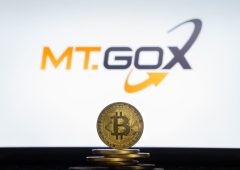Authorities Move to Freeze Assets in LIBRA Scandal, Request Deleted Data
06.03.2025 22:00 2 min. read Alexander Stefanov
A high-profile investigation into Argentine President Javier Milei’s alleged connection to the LIBRA cryptocurrency scandal has led to a request to freeze up to $110 million in assets.
Prosecutor Eduardo Taiano has also demanded the retrieval of deleted social media posts, particularly those where Milei appeared to endorse the Solana-based memecoin.
Taiano is aiming to trace financial movements linked to LIBRA by obtaining records of all transactions since its launch, focusing on a spike in trade volume around February 14-15. Efforts are underway to freeze certain wallets involved, and international requests are being made to access data from foreign crypto exchanges.
Despite Milei retracting his initial support, data indicates that insiders associated with the LIBRA team cashed out approximately $107 million before the token’s dramatic crash. Additionally, $4.5 million recently moved from one wallet, with some funds believed to be used to purchase another memecoin, POPE, possibly as part of an attempt to launder the assets.
The prosecutor is also seeking phone records, visitor logs from Milei’s offices, and interviews with blockchain specialists who could shed light on the case.
This comes after Milei faced backlash and impeachment calls for promoting a coin allegedly intended to support small businesses in Argentina, which peaked at a market cap of $4.5 billion before plummeting by over 90%, fueling accusations of a fraudulent scheme.
The scandal, dubbed “Libragate,” has seriously damaged Milei’s public image and hindered his political momentum as he faces key elections later this year.
-
1
U.S. Bank Advises Clients to Drop These Cryptocurrencies
29.06.2025 10:00 2 min. read -
2
Chinese Tech Firms Turn to Crypto for Treasury Diversification
26.06.2025 17:00 1 min. read -
3
FTX Halts Recovery Payments in 49 Countries: Here Is the List
04.07.2025 18:00 2 min. read -
4
What Are the Key Trends in European Consumer Payments for 2024?
29.06.2025 8:00 2 min. read -
5
What Brian Armstrong’s New Stats Reveal About Institutional Crypto Growth
29.06.2025 15:00 2 min. read
U.S. Public Pension Giant Boosts Palantir and Strategy Holdings in Q2
According to a report by Barron’s, the Ohio Public Employees Retirement System (OPERS) made notable adjustments to its portfolio in Q2 2025, significantly increasing exposure to Palantir and Strategy while cutting back on Lyft.
Key Crypto Events to Watch in the Next Months
As crypto markets gain momentum heading into the second half of 2025, a series of pivotal regulatory and macroeconomic events are poised to shape sentiment, liquidity, and price action across the space.
Here is Why Stablecoins Are Booming, According to Tether CEO
In a recent interview with Bankless, Tether CEO Paolo Ardoino shed light on the growing adoption of stablecoins like USDT, linking their rise to global economic instability and shifting generational dynamics.
U.S. Dollar Comes Onchain as GENIUS Act Ushers in Digital Era
In a statement that marks a major policy shift, U.S. Treasury Secretary Scott Bessent confirmed that blockchain technologies will play a central role in the future of American payments, with the U.S. dollar officially moving “onchain.”
-
1
U.S. Bank Advises Clients to Drop These Cryptocurrencies
29.06.2025 10:00 2 min. read -
2
Chinese Tech Firms Turn to Crypto for Treasury Diversification
26.06.2025 17:00 1 min. read -
3
FTX Halts Recovery Payments in 49 Countries: Here Is the List
04.07.2025 18:00 2 min. read -
4
What Are the Key Trends in European Consumer Payments for 2024?
29.06.2025 8:00 2 min. read -
5
What Brian Armstrong’s New Stats Reveal About Institutional Crypto Growth
29.06.2025 15:00 2 min. read


